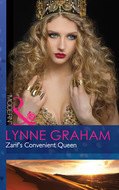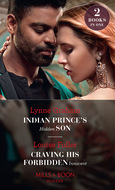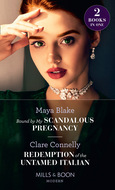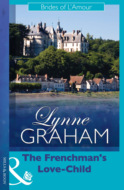Książki nie można pobrać jako pliku, ale można ją czytać w naszej aplikacji lub online na stronie.
Czytaj książkę: «The Italian's Bought Bride»
She was just about to pull her coat on when she heard a voice…a voice of cool confidence and warm admiration.
A voice that slid across her senses and into her soul, stirring up those emotions and memories she’d tried so hard to lock away.
It all came rushing back with that voice… The memories, the fear, the regrets, the betrayal. She relived the worst night of her life once more, simply by hearing two little words that she knew somehow would change her world for ever.
‘Hello, Allegra,’ Stefano said.
Kate Hewitt discovered her first Mills & Boon® romance on a trip to England when she was thirteen, and she’s continued to read them ever since. She wrote her first story at the age of five, simply because her older brother had written one and she thought she could do it too. That story was one sentence long— fortunately they’ve become a bit more detailed as she’s grown older.
She has written plays, short stories, and magazine serials for many years, but writing romance remains her first love. Besides writing, she enjoys reading, travelling, and learning to knit.
After marrying the man of her dreams—her older brother’s childhood friend—she lived in England for six years, and now resides in Connecticut with her husband, her three young children, and the possibility of one day getting a dog.
Kate loves to hear from readers—you can contact her through her website: www.kate-hewitt.com
Recent books by the same author:
RUTHLESS BOSS, HIRED WIFE
THE GREEK TYCOON’S CONVENIENT BRIDE
THE ITALIAN’S CHOSEN WIFE
THE ITALIAN’S BOUGHT BRIDE
BY
KATE HEWITT
MILLS & BOON
Before you start reading, why not sign up?
Thank you for downloading this Mills & Boon book. If you want to hear about exclusive discounts, special offers and competitions, sign up to our email newsletter today!
Or simply visit
Mills & Boon emails are completely free to receive and you can unsubscribe at any time via the link in any email we send you.
To Abby, for being a wonderful friend and confidante. You’ve seen my tears! Love, K.
CHAPTER ONE
STEFANO CAPOZZI SAT in the well-appointed office of one of Milan’s top psychiatrists, his eyes glittering in a face set like stone.
‘It has been eight months,’ he said flatly, even though Renaldo Speri had the case notes on his desk. ‘Eight months of every treatment available, imaginable, and no change.’
Speri smiled in sympathetic understanding. ‘You cannot expect a miracle cure, Signor Capozzi. You may not be able to expect a cure at all.’ He trailed off as he took in Stefano’s unrelenting gaze.
Stefano shook his head. ‘I want better.’
He would have better. He wouldn’t accept brush-offs or excuses. He’d come to Milan to find the best therapist for the child in his charge, and he would have it.
Speri ran a hand through his thinning hair and sighed. ‘Signor Capozzi, you must face the very real possibility that Lucio falls on the spectrum of pervasive development disorder—’
‘No.’ After eight months of Lucio’s silence and stress, he would not accept it. He was used to obstacles in business, and personal ones would prove no different, no more difficult. ‘Lucio was normal before his father died. He was like any other child—’
‘Autism often manifests itself at three years of age,’ Speri explained gently. ‘Lucio had only a little speech before his father’s death, and lost it completely in the months afterwards.’
Stefano raised one eyebrow in scathing scepticism. ‘And you are now trying to tell me that the two aren’t related?’
‘I am trying to tell you that it is a possibility,’ Speri said, his voice becoming strained with patience. ‘As difficult as it may be to accept.’
Stefano was silent for a moment. ‘There is no cure for autism,’ he finally said. He’d done his research. He’d read the books, seen the statistics.
‘There are therapies, diets, that alleviate some of the symptoms,’ Speri said quietly. ‘And it also depends where he falls on the spectrum—’
‘He’s not on the spectrum.’
‘Signor—’
‘I want something else.’ Stefano levelled his gaze at the psychiatrist and waited.
After a moment Speri raised his hands in a defeated gesture. ‘Signor Capozzi, we have tried therapies and grief counselling, and as you’ve reminded me, there has been no change. If anything, Lucio has descended deeper into his own iron-walled world. If this were a case of normal grief—’
‘What,’ Stefano asked icily, ‘is normal about grief?’
‘The grieving process is normal,’ Speri said steadily. ‘And accepted. But Lucio’s behaviour is not normal, and there should have been signs of improvement in communication by now. There have been none.’
On his lap, out of sight, Stefano’s hand curled into a fist. ‘I know that.’
‘Then accept that he might fall on the spectrum, and turn to the therapies and treatments that can help him best!’
Stefano was silent. Carefully, deliberately, he flattened his hand, resting it on the desktop. When Lucio’s mother, Bianca, had asked him to help, to come to Milan and tell ‘those doctors’ that her son was not autistic, Stefano had accepted. He had believed Bianca then, but now he felt the first flicker of doubt.
He would do anything for Bianca, anything for Lucio. Their family had saved him all those years ago, had pulled him up from the mire of his upbringing, giving him the steps and tools to be the man he was today.
He would never forget it.
‘Surely there is something we haven’t tried,’ he said at last. ‘Before we accept this diagnosis.’
‘The psychiatrists involved in an autism diagnosis are very thorough,’ Speri said. ‘And competent. They do not make such a judgement incautiously.’
‘Agreed,’ Stefano said tersely. ‘But still—is there something else?’
Speri was silent for a long moment. ‘There is,’ he finally said, his voice reluctant, ‘a therapist who had success with a child who’d been diagnosed with autism. Misdiagnosed, as the case turned out. He’d suffered a severe trauma the therapists working with him were unaware of, and when it was uncovered he began to regain his speech.’
Hope—treacherous, desperate—unfurled within him. ‘Then couldn’t Lucio be like that boy?’ Stefano demanded.
‘I don’t want to offer you false hope,’ Speri said, and the reluctance in his voice became more pronounced. ‘That was one case—an anomaly, a fluke—’
Stefano cut him off; he didn’t want to hear about anomalies. He wanted hope, he wanted certainty. ‘Who is this therapist?’
‘She’s an art therapist,’ Speri said. ‘Often creative therapies help children release suppressed emotions and memories, as was the case with this child. However, Lucio’s symptoms are more severe…’
‘Creative therapies,’ Stefano repeated. He didn’t like the sound of it. It sounded abstract, absurd. ‘What exactly do you mean?’
‘She uses the creative arts to provide an outlet, whether through art, song or performance, for a child’s suppressed emotions. Sometimes it is the key that can unlock a child who has been unable to be reached.’
Unlock. It was an apt word, Stefano thought, when he considered Lucio’s blank face and staring eyes. And no words. Not one word spoken in nearly a year.
‘All right, then,’ he said shortly. ‘We’ll try it. I want her.’
‘It was one case—’ Speri began, and Stefano silenced him with a raised hand.
‘I want her.’
‘She lives in London. I read of the case in a journal and we corresponded briefly, but I don’t know…’
‘She’s English?’ Disappointment sliced through him. Of what use to him—to Lucio—was an English therapist?
‘No, I wouldn’t have mentioned her if that was the case,’ Speri said with a faint smile. ‘She’s Italian, but I don’t believe she’s been back to Italy in many years.’
‘She’ll come,’ Stefano said firmly. He would make sure of it—offer whatever enticements or inducements she needed. ‘How long did she work with this other child?’
‘A few months—’
‘Then I want her in Abruzzo, with Lucio, as soon as possible.’ Stefano spoke with a finality that took the psychiatrist aback.
‘Signor Capozzi, she’ll have other patients, responsibilities—’
‘She can get rid of them.’
‘It’s not that simple.’
‘Yes,’ Stefano said flatly. ‘It is. It will be. Lucio can’t be moved; it’s too upsetting for him. She’ll come to Abruzzo. And stay.’
Speri shifted uncomfortably. ‘That will be for you to negotiate with her, of course. Such an intensive course is to be recom-mended, although there are no guarantees, but it is also costly…’
‘Money,’ Stefano replied with the barest flicker of a smile, ‘is no object.’
‘Naturally.’ Speri looked down at his notes; Stefano knew the highlights of his own CV were sketched there. Stefano Capozzi, founder of Capozzi Electronica. Liquidator of a dozen of Italy’s top electronics firms. Unrivalled.
‘I’ll give you her details,’ Speri said with a little sigh of capitulation. ‘I have the article about her and the case I mentioned here. I should tell you she’s young, quite newly qualified, relatively inexperienced, but of course that case was remarkable…’
‘That boy recovered? He spoke again?’ Stefano demanded. He didn’t like the flicker of compassion—or was it pity?—in the doctor’s eyes.
‘Yes,’ Speri said quietly, ‘he did. But it isn’t that simple, Signor Capozzi. And Lucio might be different. He might indeed be—’
‘Her details, please.’ Stefano held out his hand. He didn’t expect things to be simple. He just wanted them started.
‘Just a moment…’ Speri looked through his papers again. ‘Ah, here’s the article I mentioned.’ He smiled and handed Stefano a medical journal, opened to a folded page. ‘Here she is…a lovely photograph, don’t you think? Allegra Avesti is her name.’
Stefano didn’t hear the last part of what Speri had said, but then he didn’t need to. He knew her name. He knew her.
Or at least, he once had.
Allegra Avesti. The woman who should have been his wife, the woman he no longer knew.
His concern for Lucio fell away for a moment as he gazed at the caption: ‘Allegra Avesti, Art Therapist, with patient’. Memories swam to the surface and he forced them back down again, drowning them as his dispassionate gaze moved to the photo. He saw that she was older, thinner. She was smiling in the photo, hazel eyes glinting as she looked at the child by her side, his little fists pounding a lump of clay.
Her head was tilted to one side, her hair, a thousand shades of sunlight, piled in a careless knot, tendrils escaping to trail her cheek, her shoulder.
Her eyes sparkled and her smile was wide, encouraging, full of hope. He could almost hear the tinkling promise of pure joy. She had dimples, he saw. He’d never known. He’d never seen them. Had she not laughed like that in his presence?
Perhaps not.
He stared at the picture—the ghost of a girl he’d once known, an image of a woman he’d never met.
Allegra.
His Allegra…except she wasn’t, he knew that, had known it when he’d waited while she’d walked away. For ever.
He closed the journal, handed it back to Speri. Thought of Lucio. Only Lucio. ‘Indeed, a lovely picture,’ he said without any intonation or expression. The look of joy and hope on Allegra’s face would be an inspiration to many a fearful and weary parent, seeking answers for their child. ‘I shall contact her.’
Speri nodded. ‘And if for some reason she is occupied, we can discuss…alternatives…’
Stefano acknowledged this statement with a brusque nod. He knew Allegra would not be busy. He would make sure she was not. If she was the best, if she’d helped a child like Lucio, he would have her.
Even if it was Allegra.
Especially if it was Allegra.
The past, he vowed, would not matter when it came to helping Lucio. The past would not matter at all.
Allegra Avesti gazed into the mirror of the ladies’ powder room at the Dorchester Hotel and grimaced. Her hair was meant to be in a carelessly elegant chignon, but it looked as if she’d only succeeded with the first part of that plan.
At least her dress hit the right note, she decided with satisfaction. Smoky-grey silk, cut severely across the collarbone and held up by two skinny straps on each shoulder, it was elegant and sexy without being too revealing.
It had cost a fortune, far more than she could afford on her earnings as a therapist. Yet she’d wanted to look good for her cousin Daphne’s wedding. She’d wanted to feel good.
As if she fitted in.
Except, she knew, she didn’t. Not really. Not since the night she’d fled her own wedding and left everyone else to pick up the scattered pieces.
With a little sigh she took a lipstick and blusher out of her handbag. She didn’t think of that night, chose never to think of it—the shattered dream, the broken heart. The betrayal, the fear.
Yet her cousin’s wedding this evening had brought her own almost-wedding to the forefront of her mind, and it had taken all her energy and emotion to push it back into the box where she liked to keep those memories. That life.
The wedding had been lovely, a candlelit ceremony at a small London church. Daphne, with her heart-shaped face, soft voice and cloud of dark hair, had looked tremulously beautiful. Her husband, a high-flyer at an advertising firm in the City, seemed a bit too self-assured for Allegra’s taste, but she hoped her cousin had found happiness. Love. If such things could truly be found.
Yet, during the ceremony, she’d listened to the vows they’d spoken with undisguised cynicism.
‘Will you love her, comfort her, honour and protect her, and, forsaking all others, be faithful to her as long as you both shall live?’
As the words had washed over her, Allegra couldn’t help but think of her own wedding day, the day that never happened, the vows she’d never spoken.
Stefano hadn’t loved her, wouldn’t comfort her or honour her. Protect her? Yes, she thought wryly, he would have done that. Faithful? Doubtful…
Yet she still felt, sitting in that dimly lit church, an unidentifiable stab of longing, of something almost like regret.
Except she didn’t regret anything. She certainly didn’t regret walking out on Stefano. Although her uncle—and sometimes it seemed the rest of society—blamed her for that fiasco, Allegra knew the real fiasco would have been if she’d stayed.
But she was free, she told herself firmly. She was free and happy.
Allegra turned away from the mirror. She’d survived Daphne’s wedding, slipping out before anyone could corner her, but she wasn’t looking forward to the reception tonight. She was in a melancholy mood, didn’t feel like chatting and laughing and dancing. And although she loved Daphne and her Aunt Barbara, her relationship with her Uncle George had always been strained.
She hadn’t spoken to her uncle more than a handful of times in the seven years since he’d first sheltered her when she’d fled Italy, and those conversations had been uncomfortable at best.
Straightening, she left the luxurious powder room. It had been a hell of a day—running from appointment to appointment at the hospital, grappling with one serious and seemingly hopeless case after another. There had been no breakthroughs, no breath of hope.
Not today.
She loved her job, loved it with an intensity that some said should be replaced with the love of—and for—a man, but Allegra knew she was happy as she was. Happy and free, she reminded herself again firmly.
Still, the hopelessness of some of her cases, the children who had seen far too much suffering, too much sorrow, wore her down. She only had a few moments with them, perhaps an hour a week at most, and doctors expected breakthroughs. Parents expected miracles.
Once in a while, God was good. Once in a while they happened.
But not today.
The reception was being held in the Orchid Room, with its walls of delicate blue and ornate painted scrollery. A string quartet had been arranged near a parquet dance floor, and guests circulated amidst waiters bearing trays of hors d’oeuvres and sparkling champagne.
Allegra surveyed the glittering crowd and lifted her chin. She wasn’t used to this. She didn’t go to parties.
The last party she’d attended—a party like this, with society in full swing—had been for her own engagement. She’d worn a poufy, pink dress and heels that had pinched her feet, and she’d been so happy. So excited.
She shook her head as if to banish the thought, the memory. Why was she thinking—remembering—those days now? Why was she letting the memories sift through her mind like ghosts from another life—a life that had never happened? A life she’d run away from.
It was the wedding tonight, she decided. It was the first one she’d attended since she’d abandoned her own.
Forget it, Allegra told herself as she plucked a flute of champagne from one of the circulating trays and made her way through the crowd. Her cousin’s wedding was bound to stir up some unpleasant memories, unpalatable feelings. That was all this mood was, and she could deal with it.
Allegra took a sip of champagne, let the bubbles fizz defiantly through her and surveyed the milling crowd.
‘Allegra…I’m so glad you could come.’
She turned to see her Aunt Barbara smiling uncertainly at her. Dowdy but cheerful, Barbara Mason wore a lime coloured evening gown that did nothing for her pasty complexion or grey-streaked hair.
Allegra smiled warmly back. ‘I’m glad to be here as well,’ she returned a little less than truthfully. ‘I’m so thrilled for Daphne.’
‘Yes…they’ll be very happy, don’t you think?’ Barbara’s anxious gaze flitted to her daughter, who was chatting and smiling, her husband’s arm around her shoulders.
‘I’m afraid I don’t know much about the groom,’ Allegra said, taking another sip of champagne. ‘His name is Charles?’
‘Charles Edmunds. They met at work. You know Daphne’s been a PA at Hobbs and Ford?’
Allegra nodded. Although her uncle disapproved of Allegra keeping in touch with his family, she still spoke to Barbara on the telephone every few months, and several times Daphne had defied her father to meet Allegra for lunch.
She’d learned at one of those outings that Daphne had secured a job as PA at an advertising firm, despite her obvious lack of qualifications. Her father’s, apparently, had been enough.
‘I’m happy for them,’ she said. She watched Charles Edmunds as he glanced down at his wife, smiling easily. Then he raised his eyes, surveying the ballroom with a gaze that was steely and grey. Looking for business contacts, associates? Allegra wondered cynically. Someone worth knowing, at any rate, she decided as his eyes passed over her and Barbara without a flicker.
So much for true love, she thought with a little grimace. Charles Edmunds was a man like most others—cold, ambitious, on the prowl.
‘Barbara!’ Her uncle’s sharp voice cut across the murmur of the crowd. Both Allegra and her aunt tensed as George Mason strode towards them, his narrow features sharpened by dislike as he glanced at his niece.
‘Barbara, you should see to your guests,’ he commanded tersely, and Barbara offered Allegra a quick, defeated smile of apology. Allegra smiled back.
‘It was good to see you, Allegra,’ Barbara murmured. ‘We don’t see enough of you,’ she added with a shred of defiance. George motioned her away with a shooing gesture, and Barbara went.
There was a moment of tense silence and Allegra swivelled the slick, moisture-beaded stem of her champagne flute between her fingers, wondering what to say to a man who had ordered her from his house seven years ago. The few times she’d seen him since, at increasingly infrequent family gatherings, they’d avoided each other.
Now they were face to face.
He looked the same as ever, she saw as she slid him a glance from beneath her lashes. Thin, grey-haired, well-dressed, precise. Cold eyes and a prim, pursed mouth. Absolutely no humour.
‘Thank you for inviting me, Uncle George,’ Allegra finally said. ‘It was good of you, considering.’
‘I had to invite you, Allegra,’ George replied. ‘You’re family, even though you’ve hardly acted like it in the last seven years.’
Allegra pressed her lips together to keep from uttering a sharp retort. She wasn’t the one who had ordered so-called family out of his house, and who had made it increasingly difficult for Allegra to stay in touch.
Running away had been her only crime, and her uncle never failed to remind her of it.
For in running away she’d shamed him. Allegra still remembered her uncle’s fury when she’d shown up, terrified and exhausted, on his doorstep.
‘You can stay the night,’ he’d said grimly, ‘and then you need to be gone.’
‘He does business with Stefano Capozzi,’ her aunt had explained, desperate for Allegra to understand and not to judge. ‘If he’s seen sheltering you, Capozzi could make life very unpleasant for him, Allegra. For all of us.’
It had been an unpleasant insight into her former fiancé’s character. She had wondered then if Stefano would come for her, find her. Make life unpleasant for her.
He hadn’t, and as far as she knew he’d never made life unpleasant for her uncle. She wondered sometimes whether that had been a convenient excuse for George Mason to wash his hands of her, especially when her own defection had been followed so quickly by her mother’s.
Her mother…another person, another life, Allegra chose not to remember.
Now she met her uncle’s cold gaze. ‘I needed help and you gave it to me,’ she said levelly. Her fingers tightened on the stem of her glass. ‘I’ll always be grateful for that.’
‘And you’ll show it by keeping out of my way,’ George finished coolly. ‘And Daphne’s. Her nerves are strung high enough as it is.’
Allegra felt a flush creeping up her throat, staining her face. She kept her chin high. ‘I certainly don’t want to cause any dismay to my cousin. I’ll pay my respects and leave as soon as possible.’
‘Good,’ he replied shortly before moving off.
Allegra straightened proudly. She felt as if every eye in the faceless crowd was focused on her, seeing, knowing, condemning, even though she knew no one cared.
Except her uncle and his family.
A waiter passed and Allegra placed her nearly untouched champagne on his tray.
Murmuring her excuses as she moved through the crowd, she found a secluded corner of the ballroom and took her position there, half hidden behind a potted palm.
She took a deep breath and surveyed the circulating crowd. No one was paying any attention to her, she knew, because she wasn’t important. Her flight from Italy seven years ago was little cause of concern or even gossip these days.
She’d kept her head down and well out of society’s glare these last years, working two jobs to pay for her schooling. She was far, far from this glamorous crowd, the glittering lifestyle. Yet the people who knew her, who were supposed to love her…what had happened seven years ago still mattered to them. And it always would.
It didn’t bother her on a day-to-day basis. She didn’t need these people. She had a new life now, a good one. When she’d left that night, she’d gained her freedom, but the price for that freedom had been, quite literally, everything.
It had been a price worth paying.
The music died down and Allegra saw everyone heading to the tables. Dinner was about to be served.
Taking another deep breath, she moved through the crowds again and found her place card. She was at a table tucked in the back with a motley handful of guests who looked to be nearly as out of place as she was. Distant, vaguely embarrassing relatives, colleagues and friends who necessitated an invitation yet were not an asset to the sparkling and successful party George Mason intended for his daughter.
An art therapist with a disreputable past certainly fitted into that category, Allegra thought ruefully.
With a murmured hello, she took her place between an overweight aunt and a weedy looking businessman. The meal passed in stilted conversations and awkward silences as eight misfits attempted to get along.
Allegra let the conversation wash over her in a meaningless tide of sound and wondered just how soon she could leave.
She wanted to see Daphne but, with the cold, ambitious Charles Edmunds at her cousin’s side, Allegra wasn’t expecting a cosy cousinly chat.
The plates were cleared and her uncle stood up to speak. Allegra watched him posture importantly, talking about how he knew Charles Edmunds, cracking business jokes. At one point he pontificated on the importance of family and she smothered the stab of resentment that threatened to pierce her composure.
Soon after, the music started up again and Allegra excused herself from the table before anyone could ask her to dance. The junior from Charles’s office had been eyeing her with a determined expression.
She moved through the crowds, her head held high, her eyes meeting no one else’s.
Daphne stood apart with her husband, pale and luminous in a designer wedding gown that hugged her slight figure before flaring out in a row of ruffles.
‘Hello, Daphne,’ Allegra said.
Her cousin—the cousin she’d shared summers in Italy with, swimming and laughing and plaiting each other’s hair—now turned to her with a worried expression.
‘Hh… Hello, Allegra,’ she said after a moment, her apprehensive gaze flicking to her husband. ‘Have you met Charles?’
Charles Edmunds smiled coolly. ‘Yes, your cousin came to our engagement party. Don’t you remember, darling?’
He made it sound as if she’d crashed the party. She supposed that was what her attendance felt like. Still, she’d wanted to come, had wanted to show that no matter what they did or thought, she was still family.
‘Daphne, I only wanted to congratulate you,’ Allegra said quietly. ‘I’m afraid I’m going to have to leave a bit early—’
‘Oh, Allegra—’ Daphne looked both relieved and regretful ‘—I’m sorry…’
‘No, it’s fine.’ Allegra smiled and squeezed her cousin’s hand. ‘It’s fine. I’m tired anyway. It’s been a long day.’
‘Thank you,’ Daphne whispered, and Allegra wondered just what her cousin was thanking her for. For coming? Or for leaving? Or for simply not making a scene?
As if she ever would. She’d only made one scene in her life, and she didn’t plan on doing so again.
‘Goodbye,’ she murmured, and quickly kissed her cousin’s cold cheek.
In the foyer, she found the cloakroom and handed the attendant her ticket. She watched as the woman riffled through the rack of luxury wraps for her own plain and inexpensive coat.
‘Here you are, miss.’
‘Thank you.’
She was just about to pull it on when she heard a voice—a voice of cool confidence and warm admiration. A voice that slid across her senses and into her soul, stirring up those emotions and memories she’d tried so hard to lock away.
It all came rushing back with that voice—the memories, the fear, the regrets, the betrayal. It hurtled back, making her relive the worst night of her life once more, simply by hearing two little words that she knew, somehow, would change her world for ever.
‘Hello, Allegra,’ Stefano said.
Darmowy fragment się skończył.









